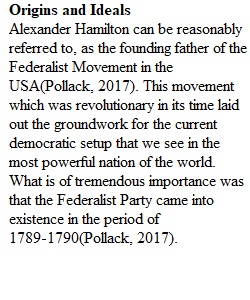


Q Everyone knows the American Revolution was fought for freedom, democracy, and equality, right? To establish a just new society, free from the limitations of Europe's hereditary nobility and open to anyone with talent and ambition? Well, not exactly. American society of the late 18th century was in fact rather more restrictive than is commonly realized today. The Revolution did in fact bring an impulse to greater freedom and democracy – an impulse that was strongly resisted by many of America's leading citizens. Many of the Founding Fathers in fact considered democracy to be a dangerous and destabilizing influence, and fought to restrict it. One of the key things to remember about the American Revolution is that it wasn't actually very revolutionary. It was a rebellion by imperial colonies against the rule of the mother country, a war for independence, but not revolutionary in the sense that is commonly understood. Comparison to the French Revolution is useful. The French Revolution was primarily a rebellion by the lower classes against the ruling monarchy and nobles - in other words, an attempt to overthrow the government and create a new one in its place. The American Revolution, by contrast, was led by the American ruling classes. The leaders of the American Revolution were actually attempting to preserve the structure of their own society, and their place as leaders of it, so the sort of radical democracy and destruction of the ruling classes that the French Revolution attempted to impose was the last thing they wanted to see. So despite the primary goal of political separation from England, the American Revolution was in many ways a conservative movement, and the nature of the government created by the American ruling elite, otherwise known as the Founding Fathers, reflects this. The defects of the original American governing document, the Articles of Confederation, had become obvious even during the Revolution. What were those defects, and why did they prompt the Founders to decide on an entirely new governmental structure, rather than attempting to "fix" the original Articles? Even after the war ended along with the stresses and expenses of trying to fight it, the government under the Articles proved to be relatively powerless and ineffective. But wasn't that what the Revolution had been about? Overthrowing the rule of a too-powerful and tyrannical government? Letting the individual colonies, now states, run their own affairs? Local governments, responsive to the will of the people? So why did so many feel it necessary to create an entirely new governing document, one that was almost entirely different from the original Articles? What were the origins of the Federalist movement, and why did it gain such power so quickly and easily? How was it that Federalists came to dominate the process which produced the new Constitution? How did that Constitution reflect the values and ideas that the Federalists espoused? The Constitution itself is frequently seen by Americans primarily as a means of securing the rights and liberties of the citizens. Is that the case? What was in fact the process by which those protections were added to the Constitution, and why were they not in the original document? From the perspective of the Founders, what was the purpose of the Constitution? Was it effective in securing those goals? Why or why not? The great sectional issues that are often mentioned as being pivotal in the framing of the Constitution – slavery, the location of the nation's capital, representation in Congress – how important were they really in the crafting of the document? Were these issues as divisive as they are often portrayed? Did they have the potential to derail the entire process, or were they simply "working out the details" of much larger and more important issues?
View Related Questions